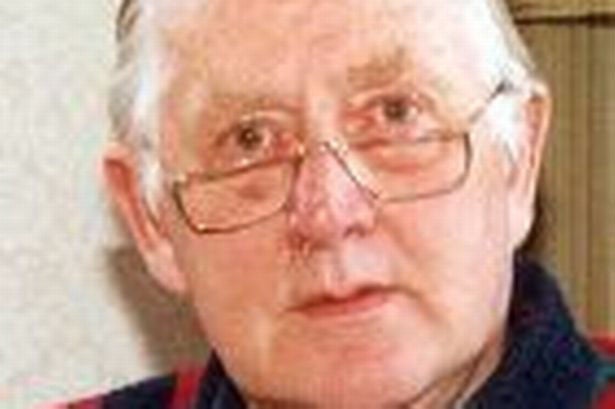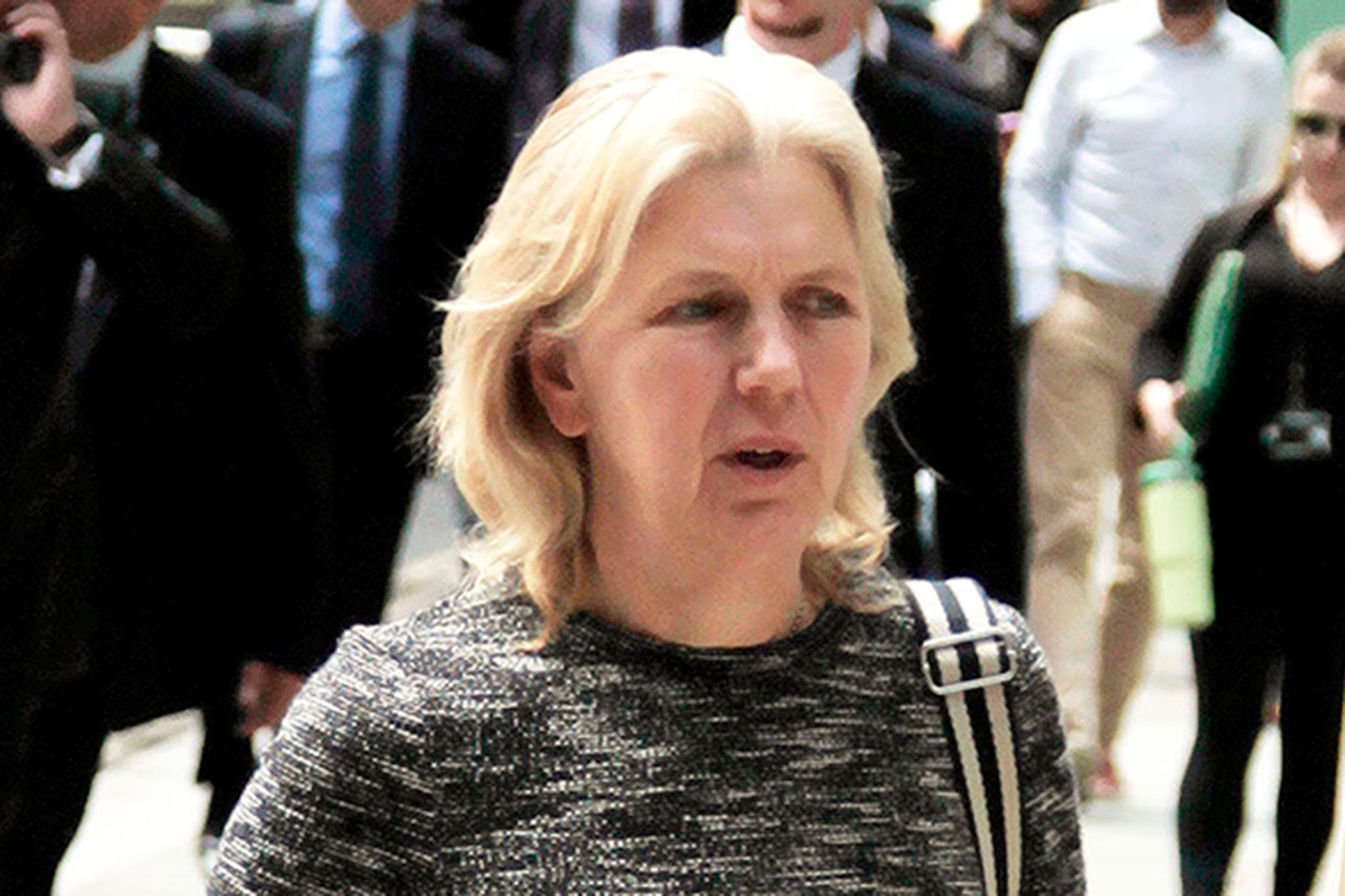
The fortune of a multimillionaire car boot king who fathered 19 children is at the centre of a £43m family will fight.
Richard Scott - who died aged 81 in 2018 - made a fortune running the UK's second biggest boot fair from his "vast" Cheshire farm, where ITV's 'Car Boot Challenge' was filmed.
Mr Scott's eldest son and "favourite" Adam Scott - described as his dad's "golden boy" - says he sacrificed his life to work on the farm side-by-side with his father from the age of nine, and was promised it would all be his one day.
But after the death of Adam's mum, Richard remarried in 2016 to his former cleaner Jennifer Scott - who was 28 years his junior and younger even than his son - and then wrote Adam out of his will, leaving Jennifer in control of his estate and farmland, which she says could now be worth up to £43m.
Now Adam, 62, is suing his step-mum, 60, as executor of Richard's estate, claiming his father was not in his right mind when he signed his two final wills.
He also says his dad promised him that he would have the right to take over the farm after his death and that he sacrificed everything to commit to "a life of hard and unrelenting physical work" on the back of those promises.

But lawyers for Jennifer claim Richard knew exactly what he was doing when he disinherited his first born after Adam's relationship with his dad "completely broke down" when he tried to get Richard sectioned.
They also say he has no claim to his dad's estate on the basis of the alleged promises, having already been handed land and property worth over £10m before Richard's death.
London's High Court heard that "mercurial character" Richard was "a ruthless, single-minded and highly successful businessman who built up a valuable property empire" before switching to running giant and lucrative car boot sales.
He fathered an astonishing 19 children, lawyers for Jennifer told the court, six with his first wife, plus six illegitimate children during that relationship, followed by another seven with Jennifer, who was working as his cleaner when the pair first got together in 1994.

Richard and Jennifer eventually married in 2016 just two years before his death in a controversial marriage disrupted by Adam trying to prevent the wedding going ahead, claiming his dad didn't have the mental capacity to marry.
"It is common ground that on 22 April 2016 Adam attended the registry office and alleged that Richard lacked capacity to marry," Alex Troup KC, for Jennifer, told Mr Justice Richards.
"That led to Richard being interviewed by four registrars and a lawyer from the local council, all of whom were satisfied that he did have capacity to marry. The wedding therefore went ahead."
By the time he died of cancer, Richard owned "a huge quantity of land" around Chelford, Cheshire, which has been officially valued for probate at around £7m, but which Jennifer claims is worth £43m based on offers she has received and development potential.

Adam's lawyers say he spent over 40 years helping his dad run the "vast, sprawling" farm and managing the car boot sales he held on part of it, and had been in line to inherit it on the basis that he would pay the probate value of the land, with that cash then to be split amongst his many siblings.
But in 2016, just months after his second marriage, Richard signed the two wills which disinherited Adam and left Jennifer in control of his wealth, as executor and a major beneficiary.
Jennifer's two sons, Gordon and William Redgrave-Scott, and Adam's sister Rebecca Horley were also made beneficiaries of the last wills.
Adam is now challenging the validity of those two final wills on the basis that his dad lacked mental capacity at the time they were made.
He is also bringing an alternative claim under the law of proprietary estoppel - a legal remedy that can be used when a landowner has promised property will be transferred to someone else at a later date - only to later go back on the promise.

Constance McDonnell KC, for Adam, told the judge: "At the heart of this case is a relationship between a father and a son, their shared devotion to the family farm in Cheshire, and a recognition by the father of his son’s willingness to commit to a life of hard and unrelenting physical work.
"This case is a paradigm example of a dedicated child’s claim to a farm, pursuant to a parent’s promise of inheritance.
"Adam seeks a remedy equivalent to the provision made for him by his father Richard in a will dated 23 June 1995, which implemented the promises made to Adam.
"On those terms, Adam would acquire a 40-year tenancy of his father’s farm and an option to purchase the farm at its probate value.
"It came as no surprise to any of the witnesses that Richard promised Adam that he would be able to farm the farm by succession, and that Adam acted in reliance on that promise by dedicating himself to the farm, and by making extraordinary sacrifices in doing so, including the loss of his marriage and the loss of family holidays and other time with his children.
"Adam's work enabled the farm to generate a profit, which Richard enjoyed the benefit of and which enabled him to discharge his own expenses, including private school fees for the children he had with Jennifer, as well enabling re-investment in the farm.
"It also allowed the farm to function smoothly and with minimal labour costs despite Richard’s ongoing health problems, which began as early as 1976."
She said the evidence supporting Adam's claim about the promises is "very extensive" and that the judge would need to decide whether his dad going back on them was "unconscionable."
"In a case like the present, where decades of work and life-changing decisions have been made in reliance on a promise, the conscience of the court should be shocked," she said.
Turning to Richard's mental state when he made the 2016 wills, the barrister said Richard had been diagnosed with a form of dementia in 2011 and had been hardly able to communicate by the time they were signed.
"Richard’s medical records include clear evidence of his ability to make decisions and to have insight having been eroded by his dementia," she said.
"Adam submits that there can be no presumptions in favour of his father’s knowledge and approval of the September and December 2016 wills. By this time, his dementia had left him incapable of speaking more than an occasional word.
"He sought to communicate in writing and by gestures, but could write no more than a few words or numbers. Jennifer acted as Richard’s ‘translator,’ purporting to explain what he intended to others.
"Richard died just over seven years ago. Since that time, the parties have been locked in combat and, despite occasional cessations of hostility, no peace has been achieved.
"Nothing could be further from Richard’s plan in 1995 that Adam - his ‘golden boy’ - would carry on with the farming enterprise to which they were both dedicated, and that his other children would be provided for either by rental income or a lump sum paid into the estate in exchange for the farm.
"With regret, Adam has to rely upon the court to set right this unconscionable outcome."

Mr Troup, representing Jennifer, however told the judge that Richard had good reasons for cutting out Adam.
He said that, in September 2013, Richard's GP, a psychiatrist, the police and two nurses had visited Pear Tree Farm with a view to sectioning him under the Mental Health Act 1983.
"But when they met Richard, they formed the view that he had capacity and therefore did not section him," he said.
"A freedom of information request by Jennifer revealed that this visit was prompted by Adam, who had represented to social services that Richard had lost capacity.
"In July 2015, Adam alleged to social services that Richard was beating Jennifer and the children. That led to an investigation by social services, which was eventually closed, but the children were placed on a safeguarding register, which they found upsetting. Richard was angry with Adam for reporting him to social services and their relationship deteriorated as a result.
"On 22 April 2016, Adam attended the registry office and alleged that Richard lacked capacity to marry. That led to Richard being interviewed by four registrars and a lawyer from the local council, all of whom were satisfied that he did have capacity to marry. The wedding therefore went ahead.
"Richard was a short-tempered, authoritarian father who expected his children to work hard on the farm and would brook no dissent. He is variously described by his children as 'controlling, manipulative and unpredictable'.....He was capable of falling out with his children."
In relation to the proprietory estoppel claim, the barrister told the judge that Adam had already been handed land and property worth over £10m by his father before he died.
"It is clear that Richard wanted his children to benefit from the fruits of his labours, and in that regard he treated Jennifer’s children on an equal footing with the children of his first marriage," he said.
"Adam worked on the farm for his father, and in the later years he did so to a greater extent than his siblings, but he was aware of Richard’s mercurial character.
"He knew that Richard had five other children by his first marriage, and seven children by Jennifer, all of whom had an expectation of inheritance.
"Adam was rewarded for his work, including by Richard making lifetime gifts to him of substantial parcels of land, which have proved to be extremely valuable.
"Adam relies on a number of alleged statements made by Richard as assurances. Any statements made by Richard in Adam’s early years were not sufficiently clear statements intended to be taken seriously. Adam himself states that 'when I was young it was just a hope…'
"Richard was an inherently unreliable character, whose track record was of breaking promises," the barrister concluded.
The trial continues.
Torvill and Dean ‘bow out on a high’ skating to Bolero in final performance
Government urges Fujitsu to pay compensation to victims of Post Office scandal
Southend Airport latest: Experts probe cause of crash after plane ‘corkscrewed’
Thames Water announces hosepipe ban for large parts of southern England
BBC breached editorial guidelines on controversial Gaza documentary, corporation says
Hosepipe ban mapped: Which areas are affected – and where could face restrictions







